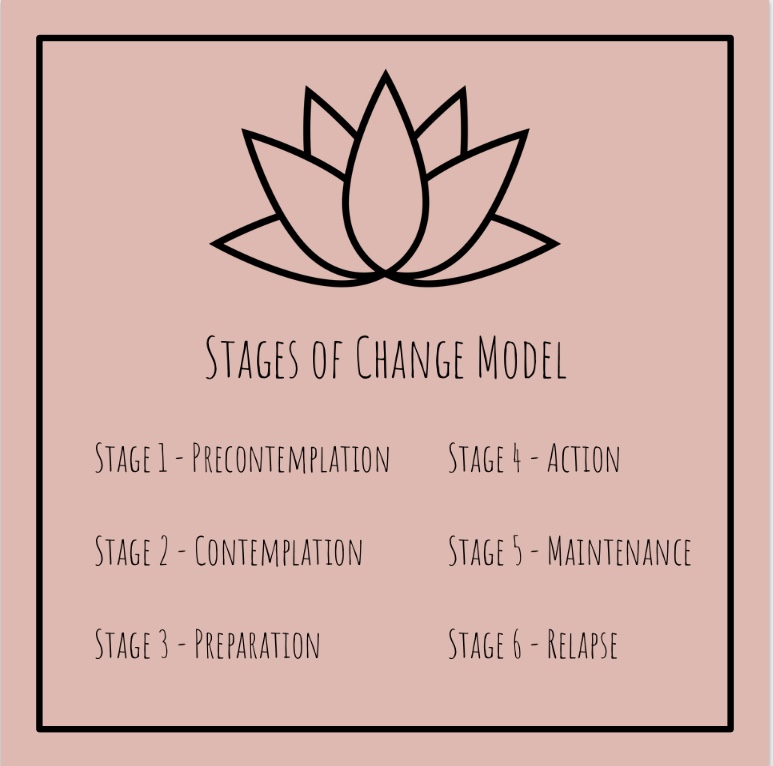When researching topics for posts I came across the Stages of Change Model. This model of change is a well known model that focuses on a gradual process. What I love about this process is that it has built in expected relapses on the way to lifelong change. Change is not easy, but when done gradually it becomes easier.
Elements of Change
When working on changing behavior it is important to understand the elements involved in making a change.
Readiness
Do you have what it takes to make the change?
Barriers
Is anything in the way between you and the change?
Relapse
What might cause you to return to a former behavior?
Stage 1 – Precontemplation
The first stage of change is before you even realize you need to make a change. You are in denial because you don’t realize you have a problem. I used to be in denial and didn’t think my eating issues and anxiety/depression were a problem. In this stage you aren’t aware of the consequences of your actions. You also believe that you can’t control your behavior.
Stage 2 – Contemplation
During contemplation, you become more aware of the benefits of making change. This stage can take a while. During this stage it is important to think about why you want to change and what can help you. Think about the pros and cons of changing and how ready you are to change.
Stage 3 – Preparation
During preparation you start making small changes to get you to your goal. During this stage it is very helpful to do research about what you can do to change your behavior. Make a plan of the steps it will take to get to where you want to be. Think about what type of resources you will need to make a lasting change.
Stage 4 – Action
The action stage is where you finally take direct action toward your goals. It is important to start small and gradually make your way towards this step. If you don’t make gradual changes you will be more likely to give up. Celebrate every step of the way. Positive reinforcements are key to changing your behavior. While working on this step it is important to continue to take inventory of your motivations and resources to stay on track.
Stage 5 – Maintenance
The maintenance stage focuses on getting rid of bad habits and making new, better habits. When you able to continue your better habits and avoid the bad habits, reward yourself. If you do happen to fall back into the bad habits, forgive yourself and develop ways to avoid those bad habits.
Stage 6 – Relapse
As I mentioned above, one of the things I love about this model of change is that it acknowledges the fact that we aren’t perfect and we are probably going to relapse, but that’s ok. Don’t let relapses set you back. Focus on what motivates you and what your goals are.

